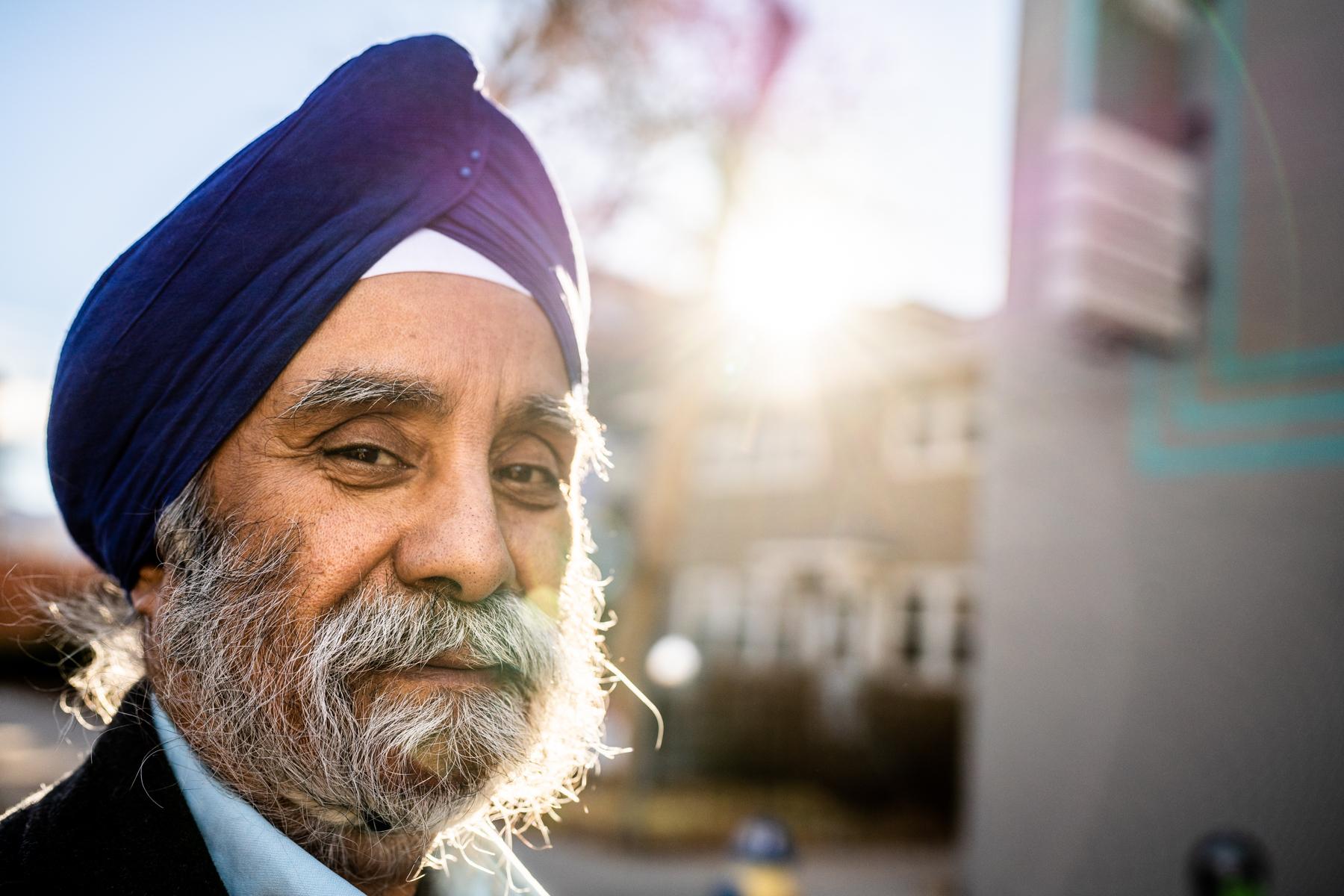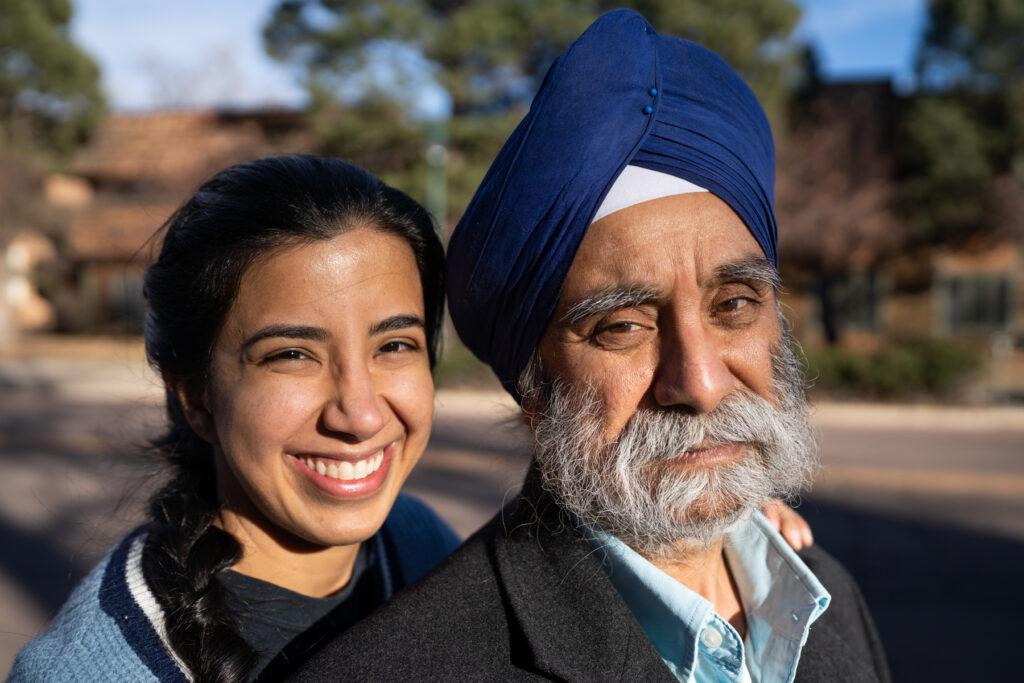
Naureen Singh and other volunteers are interviewing dozens of Sikhs living in Colorado. It’s part of a project to collect their oral and written stories.
“We've really been doing our best to try to get everyone who has a story to share to be involved,” said Naureen Singh, who directs policy for the group Colorado Sikhs. She’s leading the effort funded by a $50,000 grant from History Colorado’s State Historical Fund. “This project is community-driven and community-led because, at the end of the day, this is our community’s story.”
The effort is coordinated by Colorado Sikhs, Sikh American History Project and Alpine Archaeological Consultants. The group plans to interview at least 200 people. So far, Singh said she’s uncovered themes around agriculture, trucking and military experience.
The handful of military bases in Colorado brought people like Singh’s family to the state. Naureen’s father, GB Singh, is a retired Colonel. Not only has he had a major influence on his daughter but on the lives of Sikhs in the U.S. military. GB is one of the highest-ranking Sikhs to serve active duty with a turban in the Army.
“I think my father plays a really unique role in this project, primarily because of his story of being stationed out here in Colorado in the 1990s at a very unique time in his career,” Singh said.
Sikhism is an Indian religion founded in 1469 in the Punjab region of South Asia. Turbans are an important aspect of the tradition and are worn by women and men. The turban represents honor and that all humans are equal, among other values in the faith. It is believed to be a gift from their gurus.
After paving the way for some Sikhs in the U.S. military, GB Singh sees his daughter’s project as part of the same effort.
“Not that I planned it that way, but it turned out that way and I'm really proud of her,” GB said.

For Singh, she enjoys going through her dad’s old scrapbooks and paperwork.
“It has been cool to hear his history because every time he says it, I always pick up on new things that I didn't know before,” Singh said. “It was really cool to dig back and always pull the layers of his story that I may have never even heard even growing up with.”
Aside from her father’s story, Singh said she’s learned a lot about rural communities in the state.
“When we think of immigrant communities in Colorado, we often think of the Front Range as having the [largest] populations of Sikhs,” she said. “But actually throughout history, when we look at newspaper articles, something I found interesting was that prior to the 1950s, there were actually a lot of Sikhs in rural communities of Colorado.”
She discovered marriage notices from the 1920s and 1930s between white women and Sikh men in Southeastern Colorado, Rocky Ford and Adams County. The unions were so notable that they appeared in newspapers from Denver to Indiana and Texas.
She learned that the Gurudwara or Sikh house of worship in Colorado Springs was started by women and that many Sikhs work in the trucking industry. Some travel from Kansas and Nebraska to Colorado for worship services.
“There have been a few times over the last year that I've seen trucks driving down I-25 and they actually have the Sikh Khanda, which is like our Sikh symbol, on the back of the truck,” Singh said. “I had to like stop myself and be like, ‘Oh my goodness!’”
Although there have been positive stories coming out of the project, there are also some experiences tied to racism and trauma, specifically the hate the community experienced around race riots in the early 1900s, 9/11, the Iranian hostage crisis in 1979 and more. Because the project is community-driven, it allows the history to be told in a “delicate and sensible way,” Singh said.
When the two-year timeline is up, Singh said the stories collected will go into a report. Her goal is to have the information displayed to the public and accessible to the Sikh community in some way.
But her hope is to make the report robust enough to one day appear in classroom history books.
“To have someone who was from that community documenting these stories is really important,” she said. “We're actually able to collect things and not just take a very surface-level conversation out of it.“
To get involved or learn more visit coloradosikhs.com.









